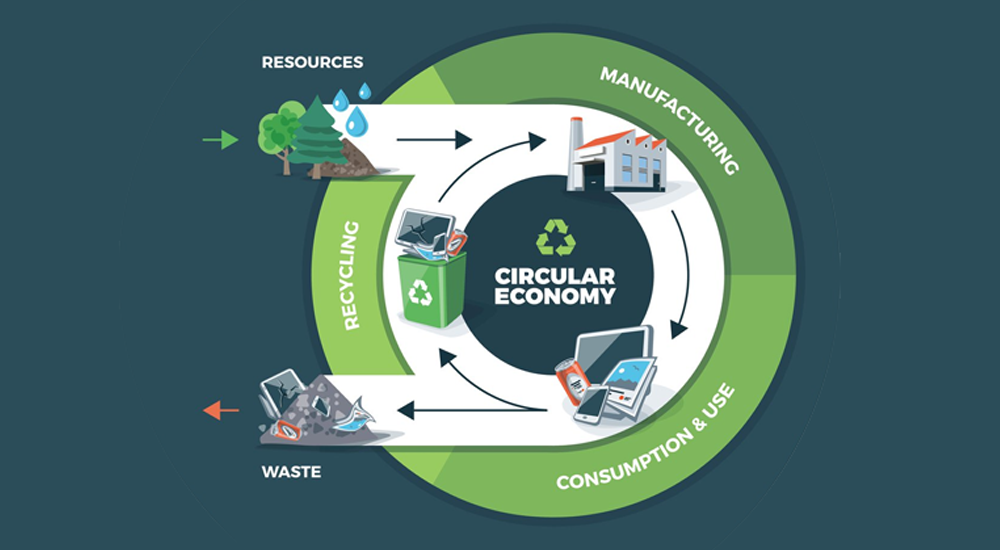How do circular economies contribute to sustainability?

Circular economies help with sustainability by promoting a system in which resources are reused and waste is minimized. In a circular economy, products and materials are designed to be reused, repaired, and recycled, rather than being discarded after a single use. This reduces the amount of waste generated, conserves natural resources, and reduces the environmental impact of production and consumption.
Circular economies also promote the use of renewable energy sources, which helps reduce greenhouse gas emissions and mitigates the impact of climate change. By reducing waste and conserving resources, circular economies also help to ensure that resources are available for future generations.
In addition, circular economies can provide economic benefits by creating new business opportunities and jobs in areas such as recycling, repair, and refurbishment. This can also help to reduce dependence on finite resources and create a more resilient economy.
Overall, circular economies offer a more sustainable and efficient approach to production and consumption, which can help to address some of the environmental challenges facing our planet.





